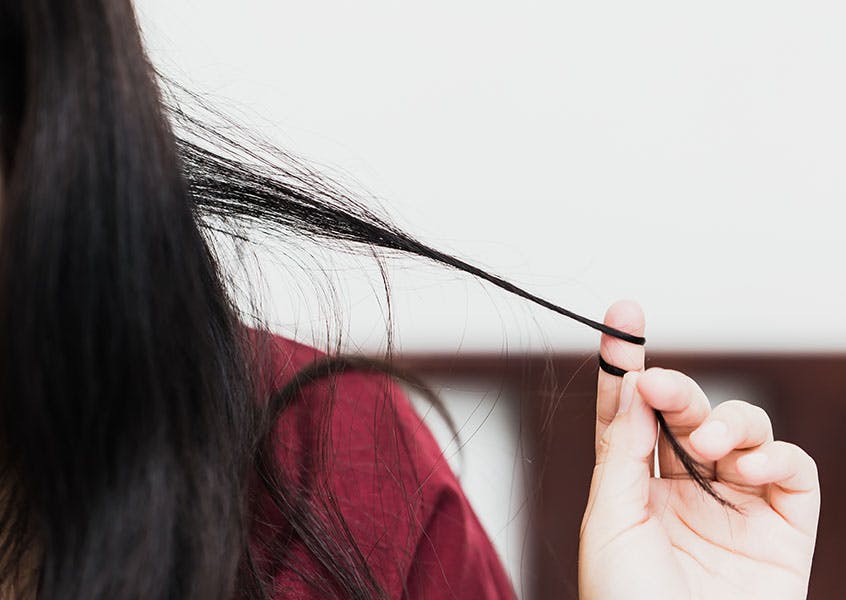Trichotillomania, also referred to as Hair-Pulling Disorder, is a psychological condition characterized by an irresistible compulsion to pull out one's own hair. In this comprehensive article, we delve into the underlying causes of this disorder, its telltale symptoms, and the available treatment options. Additionally, we shed light on the distinctions between Trichotillomania and obsessive-compulsive disorder (OCD), while also discussing potential preventive measures.
Symptoms of Trichotillomania
Individuals grappling with Trichotillomania experience an intense urge to pull out hair from different parts of the body, including the scalp, eyebrows, eyelashes, and pubic region. Despite being aware of the harm caused by this behavior, resisting the compulsion proves arduous. Oftentimes, those affected may engage in additional actions such as playing with, twirling, or chewing on the extracted hair. While a sense of relief or pleasure may follow the act, individuals commonly experience feelings of shame, distress, or anxiety associated with their hair-pulling behavior.
Understanding Hair-Pulling Disorder
Hair-Pulling Disorder, known as Trichotillomania, manifests as repetitive hair pulling, resulting in localized hair loss, and thinning. This behavior can extend beyond the scalp to encompass eyelashes, eyebrows, facial hair, and pubic hair. Importantly, hair pulling can occur both consciously and unconsciously, categorizing this disorder as a psychiatric condition characterized by repetitive thoughts and behaviors. Trichotillomania exhibits a higher prevalence among women, particularly during the teenage years.
Causes of Hair-Pulling Disorder
The precise cause of Hair-Pulling Disorder remains unclear, yet several hypotheses suggest potential contributing factors, including:
- Scalp or skin-related diseases
- Imbalances in neurotransmitters within the brain
- Abnormalities in brain connections governing emotional control, movement, habit formation, desensitization, and impulse control
- Stress, pressure, and anxiety associated with repetitive thoughts and behaviors
- Depression
- Genetic predisposition
- Dissatisfaction with one's appearance or low self-esteem
Distinguishing Trichotillomania from OCD
While hair pulling may share similarities with OCD symptoms, Trichotillomania is recognized as a distinct disorder categorized as a body-focused repetitive behavior disorder. In contrast, OCD falls within the realm of anxiety disorders.
Treatment Approaches for Trichotillomania
Effective treatment strategies for Trichotillomania typically involve a combination of therapies, including cognitive-behavioral therapy (CBT), habit reversal training (HRT), and acceptance and commitment therapy (ACT). CBT aims to modify negative thoughts and behaviors associated with hair pulling, while HRT assists individuals in identifying triggers and substituting the act with less harmful alternatives. ACT focuses on accepting the urge without judgment and committing to personal values and goals. In some cases, medication such as selective serotonin reuptake inhibitors (SSRIs) may be prescribed as part of the treatment plan.
Preventing Trichotillomania
Currently, no definitive method exists to prevent Trichotillomania. However, early intervention and treatment play pivotal roles in alleviating symptoms and halting the progression of the disorder. Managing stress and anxiety is paramount, as they can act as triggers for the hair-pulling urge. Additionally, maintaining a healthy lifestyle encompassing sufficient sleep, regular exercise, and a balanced diet may aid in preventing the onset of Trichotillomania.
Maintaining good physical and mental health is of utmost importance when it comes to managing this condition. While Trichotillomania can feel personal and close to home, self-awareness and self-care play crucial roles. For Krungthai-AXA customers who are experiencing symptoms resembling those discussed earlier, there is an opportunity to assess their mental well-being online at no cost. To learn more about this service, please visit https://www.krungthai-axa.co.th/th/MindHealth
Reference:
· Pobpad
· Rama Channel
· Rajavithi Hospital
· Chulakorn Hospital
· Petcharavej hospital


